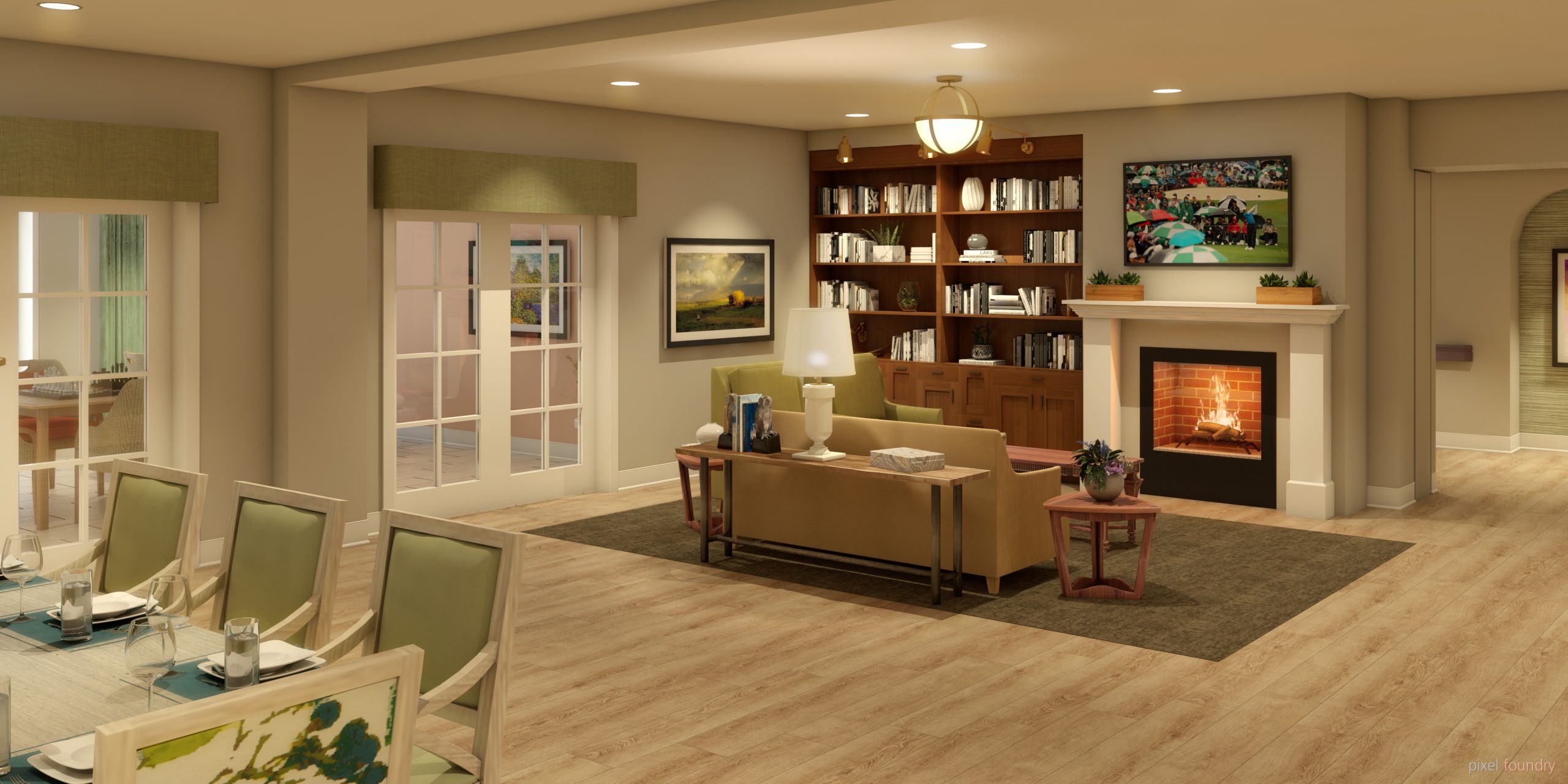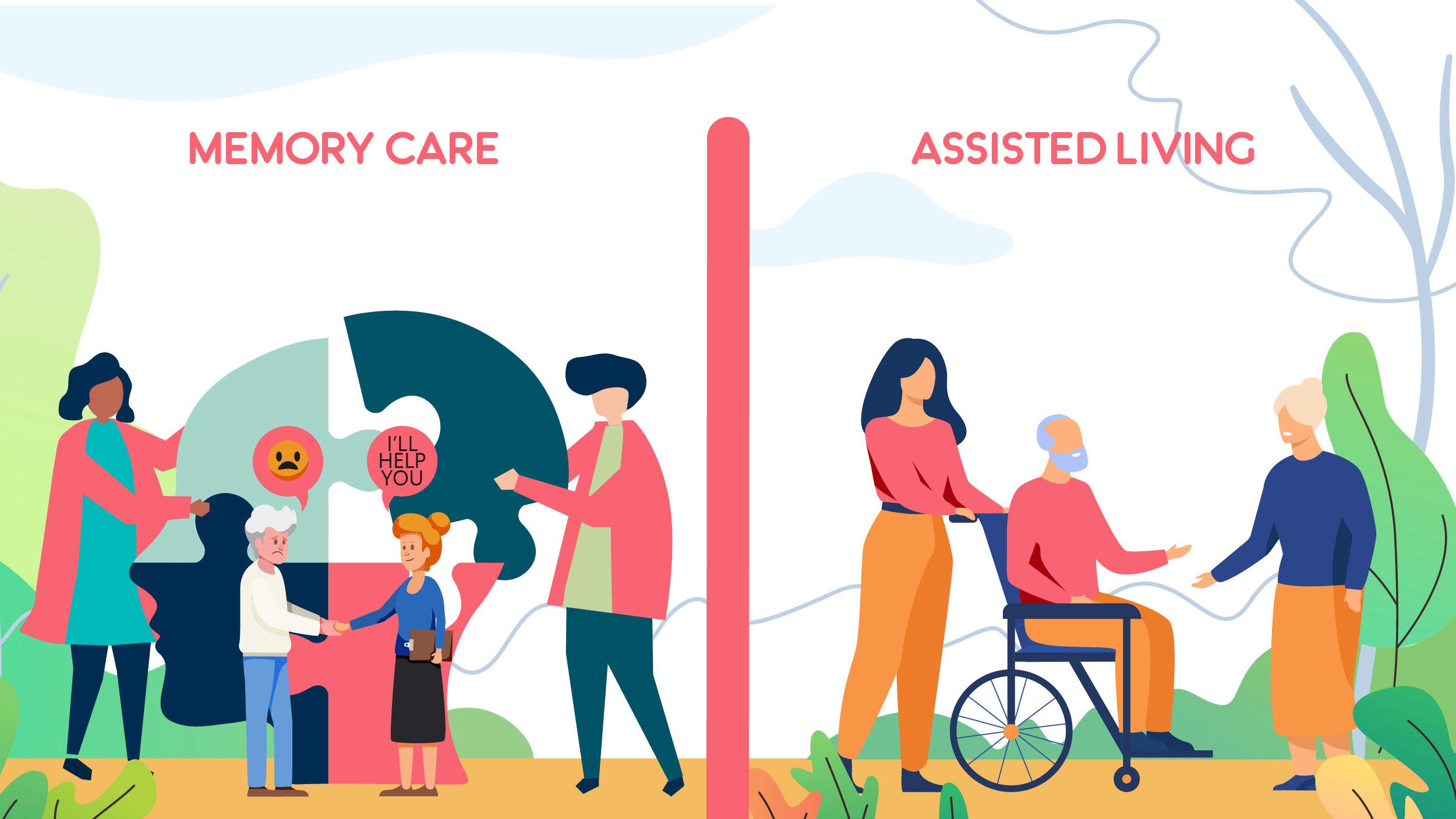Discover Charlotte Memory Care: Compassionate Senior Care Solutions
Wiki Article
Producing a Safe and Helpful Setting: In-Home Memory Care Fundamentals
Developing a secure and caring setting for people needing in-home memory care is paramount to their wellness and quality of life. From making sure safety within the space to utilizing reliable interaction techniques and executing memory-friendly design elements, there are vital parts that add to a holistic care approach. By concentrating on creating a supportive community that caters to the one-of-a-kind requirements of those with memory problems, caretakers can substantially boost the everyday experiences of their loved ones.
Safe Living Atmosphere
When giving at home memory treatment for individuals with cognitive impairments,Developing a secure and hazard-free living environment is extremely important. Ensuring the security of the individual with memory loss is vital to protect against crashes and advertise a sense of well-being. One important element of developing a risk-free living setting is to remove any possible threats that can bring about slides, trips, or falls. This includes protecting loosened rugs, guaranteeing appropriate lighting in all locations of the home, and maintaining paths clear of clutter.In addition, making use of modern technology such as movement sensing units and alarms can notify caregivers if the specific wanders or is in distress. By focusing on safety actions and removing potential threats, caregivers can supply a supportive and safe setting for people with cognitive problems getting at home memory care.
Reliable Communication Approaches
Implementing tailored communication strategies is important in cultivating purposeful interactions with individuals with cognitive problems in the context of in-home memory treatment. Reliable interaction plays an essential function in creating a supportive environment that improves the health and quality of life for people with memory issues. When communicating with somebody experiencing cognitive decrease, it is necessary to use easy and clear language, maintain a calm and positive tone, and supply aesthetic signs to help comprehension.One secret strategy is to exercise active listening, showing compassion, perseverance, and respect during discussions. Non-verbal signs such as faces and body movement can also aid convey understanding and support. Furthermore, making use of reminiscence therapy by discussing past experiences or making use of songs and art can use lasting memories, stimulating links and stimulating involvement.
Moreover, incorporating regular routines and constant communication patterns can offer a feeling of familiarity and protection for individuals with memory problems. By implementing these communication methods, caretakers can establish meaningful connections and advertise a feeling of convenience and count on the at home memory treatment setting.
Memory-Friendly Design
Given the value of producing a helpful atmosphere for individuals with memory concerns with efficient communication approaches, the unification of memory-friendly style elements in the living room comes to be important in enhancing their everyday experiences and overall well-being. Memory-friendly layout concentrates on improving safety, convenience, and self-reliance for people with cognitive disabilities. Simple alterations can make a considerable difference, such as making use of contrasting shades to enhance visibility and minimize confusion, including clear signage to assist navigation, and minimizing mess to stop sensory overload.
Integrating acquainted elements from the individual's past, such as personal photos or favorite products, can stimulate favorable memories and develop a feeling of knowledge. By incorporating these memory-friendly layout components, caretakers can give a supportive and safe living space that enables individuals with memory issues to keep their independence and quality of life. Charlotte Memory Care.
Daily Routine Preparation
When creating a day-to-day regimen for individuals with memory issues, careful planning is necessary to support their cognitive feature and overall well-being. Establishing an organized timetable can help in reducing confusion, disorientation, and anxiety typically experienced by those with memory impairments. Begin by including acquainted activities that align with the individual's rate of interests and preferences. Uniformity in everyday regimens can provide a complacency and security, assisting in the preservation of cognitive capacities.It is essential to permit sufficient time for each task, minimizing the requirement to hurry and avoiding prospective disappointment. Simple tasks like dish times, individual care, medicine monitoring, and exercise should be integrated right into the regimen. Additionally, integrating normal periods of rest and relaxation can stop fatigue and agitation. Versatility is vital, as some days might need adjustments based on the person's mood and power degrees. Frequently reviewing and adjusting the daily routine will certainly aid guarantee its effectiveness in advertising a soothing and positive environment for individuals with memory obstacles.
Assistance System Application
Establishing a robust network of supportive people plays a crucial duty in boosting the high quality of care and well-being for individuals needing memory assistance. Relative, close friends, medical care specialists, and neighborhood sources can all add to developing a solid support group. Communication amongst these individuals is vital to make sure that the needs of the individual with memory obstacles are satisfied efficiently.Member of the family are frequently the key caregivers and create the foundation of the assistance system. They give everyday treatment, emotional assistance, and companionship. When needed to prevent exhaustion and make certain the finest feasible treatment for their loved one., it is essential for household members to directory seek aid and respite.
In enhancement to family members support, involving medical care professionals such as therapists, nurses, and doctors can supply specialized care and advice. These specialists can supply important insights, medical advice, and help in handling the person's problem.

Verdict
To conclude, producing a safe and helpful atmosphere for individuals with memory care demands is crucial for their wellness. By developing a secure living atmosphere, go to website making use of effective communication strategies, integrating memory-friendly layout components, intending day-to-day regimens, and applying a solid support group, caregivers can aid boost the high quality of life for those with memory loss. These necessary elements interact to develop a nurturing and encouraging atmosphere that promotes independence and enhances total top quality of life.Producing a hazard-free and secure living setting is extremely important when giving in-home memory treatment for individuals with cognitive impairments. By prioritizing safety and security procedures and eliminating prospective hazards, caretakers can offer a protected and encouraging environment for people with cognitive disabilities receiving at home memory care.
Developing a robust network of encouraging individuals plays a pivotal duty in enhancing the top quality of care and health for individuals see this requiring memory assistance - Charlotte Memory Care. Communication amongst these individuals is crucial to make sure that the needs of the private with memory difficulties are met successfully

Report this wiki page